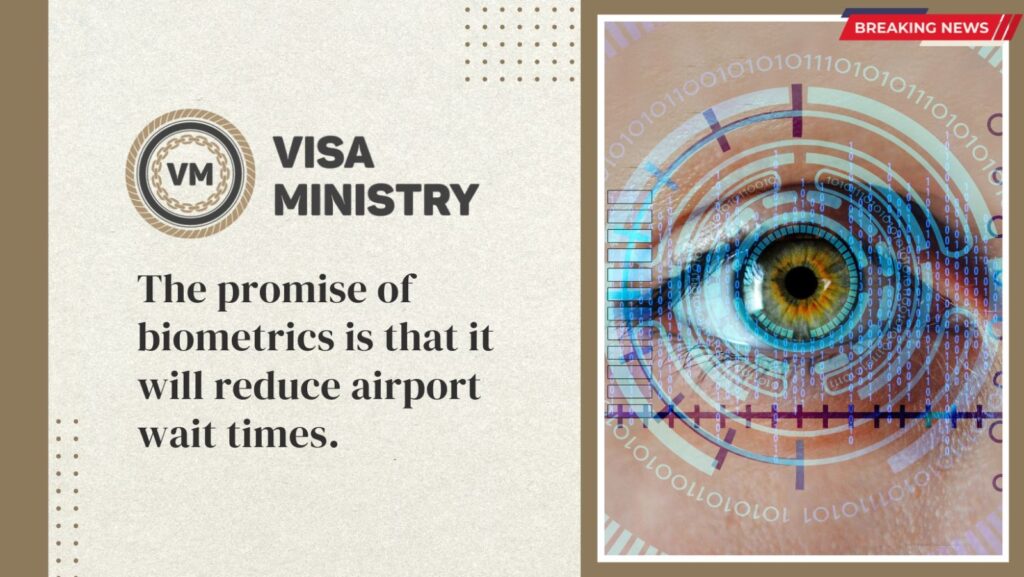The urgent need to shorten wait times for services like security and immigration checks at airports or even when picking up rental cars comes into focus as summer travel picks up. Undoubtedly, one of the most annoying experiences for travellers is standing in long lines for any procedure.
The adoption of contactless systems at airports, including biometric processing at crucial touchpoints like immigration, security screening, and check-in, has been accelerated in part by the COVID-19 pandemic. While ensuring a safer and more convenient travel experience, the switch to touchless technology aims to minimise queuing and reduce overall airport wait times.
According to IATA’s 2022 Global Passenger Survey (GPS), biometrics has made a name for itself in the travel industry as a game-changing innovation that offers a promising solution to the enduring issue of lengthy lines at airports. This technology has the potential to completely change the way we travel, with an impressive 88% of passengers who have used the service expressing satisfaction with the overall biometric procedure.
The survey also reveals that 75% of travellers are open to using biometrically-enabled technology in place of traditional passports or boarding passes. The desire to save time and avoid the inconvenience of lines is the primary driver of this growing preference for biometric identification. In fact, 44% of travellers want to speed up the check-in process, and 33% would prefer to finish immigration formalities before arriving at the airport.
It is conceivable that when a straightforward ID is presented at a terminal, the system will instantly verify all the information. Security personnel are then given the necessary information, and travel can continue. This greatly expedites the procedure and can be used in other situations, like picking up a rental car or a key for a vacation home.
The leading supplier of digital identity, Signicat, is at the forefront of this technological revolution. Due to their years of experience, procedures like identity verification and authentication can be optimised. This results in quicker, more efficient, and safer services for both travellers and airports.
Video identification is an important biometric technology development. In the past, airport security personnel or immigration officers manually verified passports by inspecting the validity of the document. This procedure is enhanced by biometrics, making it safer and more effective. The technology precisely verifies the authenticity of a passport, detects manipulations or forgeries, and significantly reduces processing time without compromising security.
Despite all the advantages, passengers have valid worries about the use of biometric information. According to the survey, the biggest concerns are data loss due to security breaches, who has access to the data, and general apprehensions regarding the handling and storage of personal information. Passengers’ demands for constant improvement in data security protocols are a direct response.
Consumers generally worry about data and information security, which is not specific to the travel industry. Signicat’s annual “Battle to Onboard” report discovered that 92% of respondents are worried about the amount of data they share with their bank when completing an application.
It is crucial to continue educating users about how these new technologies work and why they are important, both through local legislation in each country and at a global level. In Europe, for example, the protection of personal information and data privacy will always remain a high priority, regardless of the industry.
Source- Travel daily

